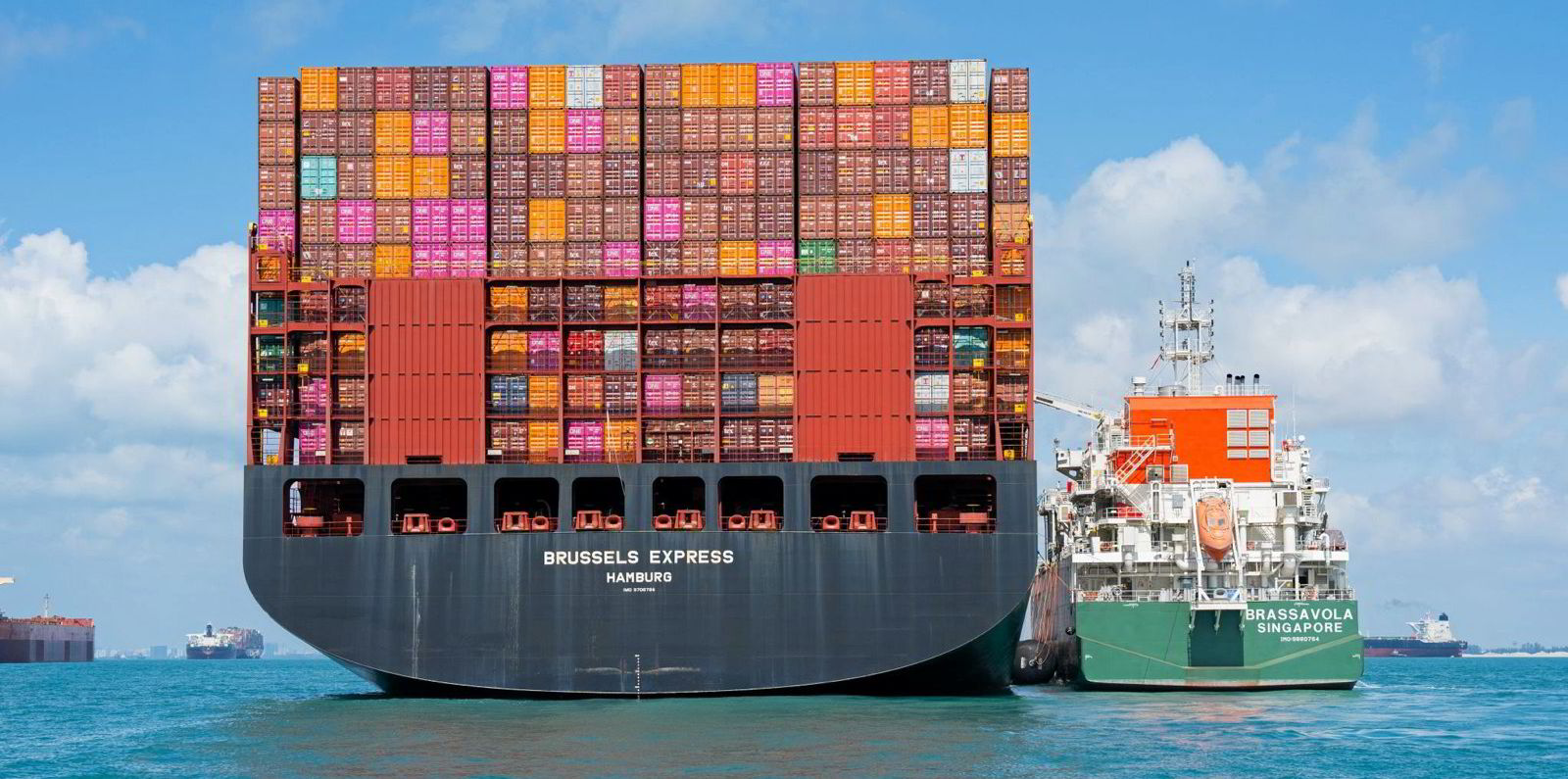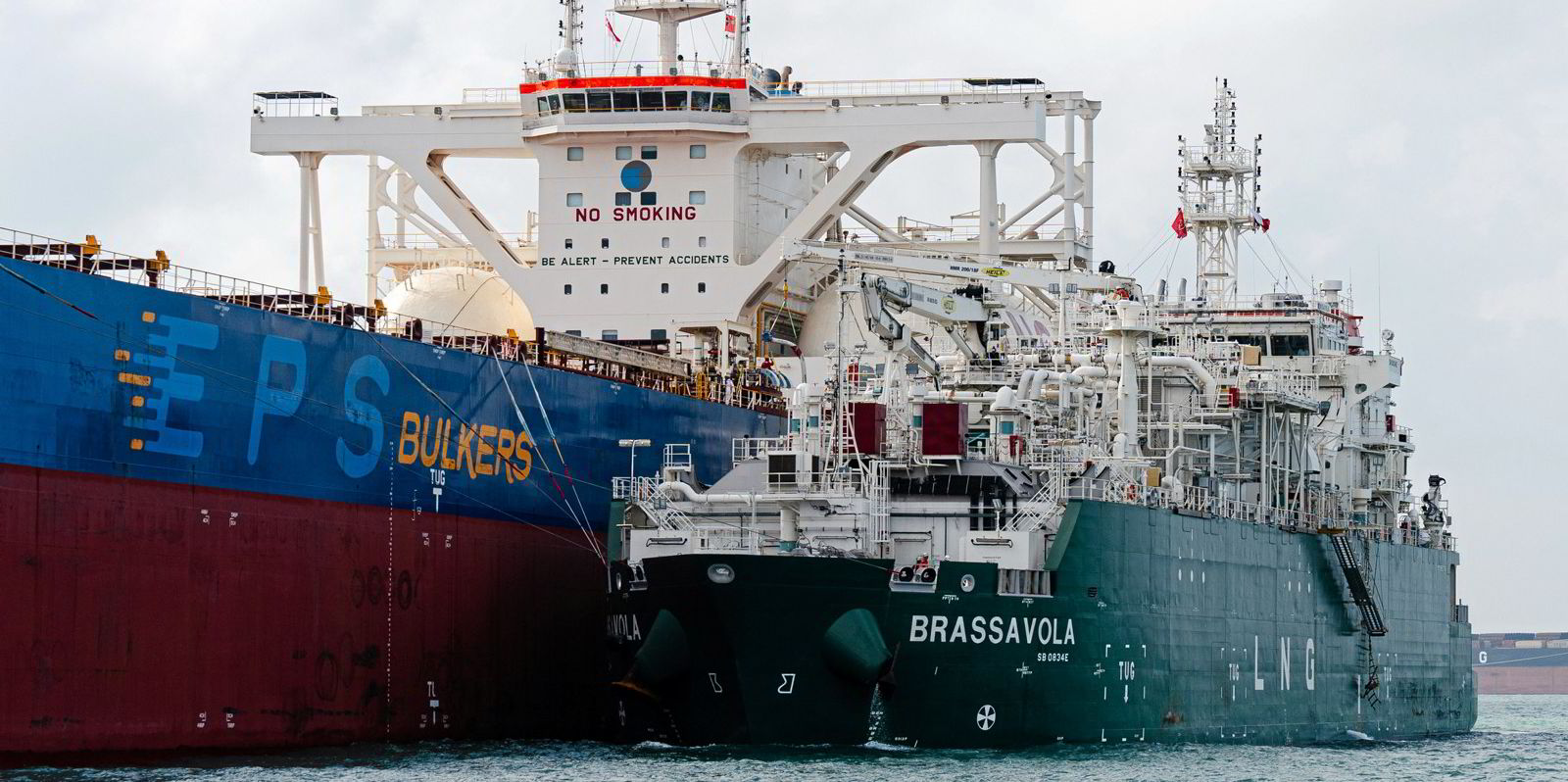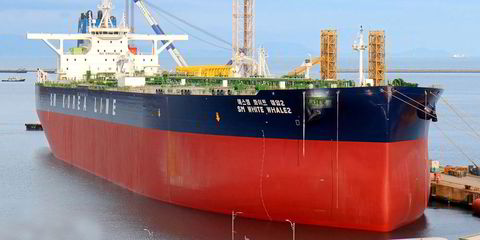The Methane Abatement in Maritime Innovation Initiative (MAMII) has selected four technology providers with whom to launch onboard ship trials.
MAMII, an industry grouping run by Lloyd’s Register’s Safetytech Accelerator, selected Daphne Technology, CDTi Advanced Materials, Rotoboost and Plenesys from 20 companies it had originally identified whose technology is designed to cut methane emissions from the exhaust stacks of LNG-fuelled vessels.
Feasibility studies were then conducted with these four providers and the help of three MAMII anchor shipowner partners — Capital Gas Ship Management, MSC Mediterranean Shipping Company and Seapeak.
“The outcomes of these feasibility studies showed strong potential to cut methane emissions in the maritime industry,” MAMII said.
The group now plans to progress these research projects to on-ship trials “as soon as possible”, the group said.
Running through the four providers, the grouping detailed that Plenesys’ solution demonstrated that it can effectively reduce methane slip by 78% by converting it to hydrogen.
MAMII said Daphne Technology’s SlipPure methane abatement system offered a potential reduction of up to 440 tonnes per annum of methane on an LNG dual-fuelled, 14,000-teu container ship.
The group said the results from CDTi’s kit showed how its engine catalyst could offer increased methane conversion at lower temperatures than industry norms, achieving 80% methane conversion at lower temperatures across various engine loads.
Methane slip reduction and CO2 emissions
Rotoboost’s system reduced methane slip by improving combustion efficiency but also lowered CO2 emissions due to the higher calorific value of the hydrogen-enhanced fuel mix. The hydrogen drop-in fuel generated offered significant emissions reductions and additional revenue from carbon byproducts, the group said.
- Daphne Technology’s SlipPureTMis a plasma-catalysis -based methane abatement solution installed in exhaust stacks. The system converts methane into carbon dioxide and water
- CDTi uses emissions catalysts to passively oxidize methane in the exhaust stream and reduce its release into the atmosphere
- Rotoboost enables on-site low-carbon hydrogen production through thermo-catalytic decomposition (TCD) as a pre-combustion Carbon Removal & Methane Slip Reduction solution. In maritime, oil and gas applications, hydrogen can be blended as a drop-in fuel with LNG
- Plenesys employs plasma torches to crack methane molecules, separating clean hydrogen from carbon.
MAMII, which was launched in September 2022 and now has 20 partners, said it hopes to progress these research projects to on-ship trials as soon as possible.
Understanding methane combustion performance
“Information about how methane combustion performs under different conditions will be critical to solving the challenge of methane slip,” said Bud Darr, MSC Group executive vice president for maritime policy and government affairs.
“Research insights from studies such as this one get the industry a step closer to understanding not only combustion performance but also what combination of onboard technologies can deliver significant methane emissions reduction.”
- Methane accounts for just over 17% of greenhouse gases.
- It is a short-lived greenhouse gas, with an average lifetime in the atmosphere of about 12 years, but it is more potent than CO2, albeit over that shorter time frame. One tonne of methane generates about 28 times the amount of warming as the equivalent amount of CO2.
- So tackling methane emissions can present a quick-fire way to tackle greenhouse gas emissions.
Darr said improving the global maritime fleet’s methane footprint will be crucial to unlocking the potential for bio and synthetic LNG as zero-emission fuels.
Seapeak vice president of operations Chris McDade said: “As a MAMII anchor partner, our fleet will directly participate in feasibility studies, new equipment trials and testing of technical solutions to reduce or eliminate methane slip from LNG vessels.”
Capital Gas Ship Management technical manager Alexandra Xystra said the feasibility studies for methane technologies represent a “critical step” towards reducing her company’s environmental footprint and underscore the resolve to contribute to the industry’s sustainability goals.
Safetytech Accelerator head of innovation programmes Nadia Echchihab said: “These technologies represent a significant stride towards mitigating methane emissions in the maritime industry, contributing to a sustainable and cleaner future for our oceans and the planet”.
- MSC Mediterranean Shipping Company
- Carnival Corp
- Seaspan Corp
- Shell
- Lloyd’s Register
- Knutsen Group
- Maran Gas Maritime
- Cool Company
- Capital Gas
- Celsius Tankers
- JP Morgan’s shipowning arm Global Meridian Holdings
- Mitsui OSK Lines
- TMS Cardiff Gas
- United Overseas Management
- NYK
- MISC
- Chevron
- TotalEnergies
- UK P&I Club
- Safetytech Accelerator





